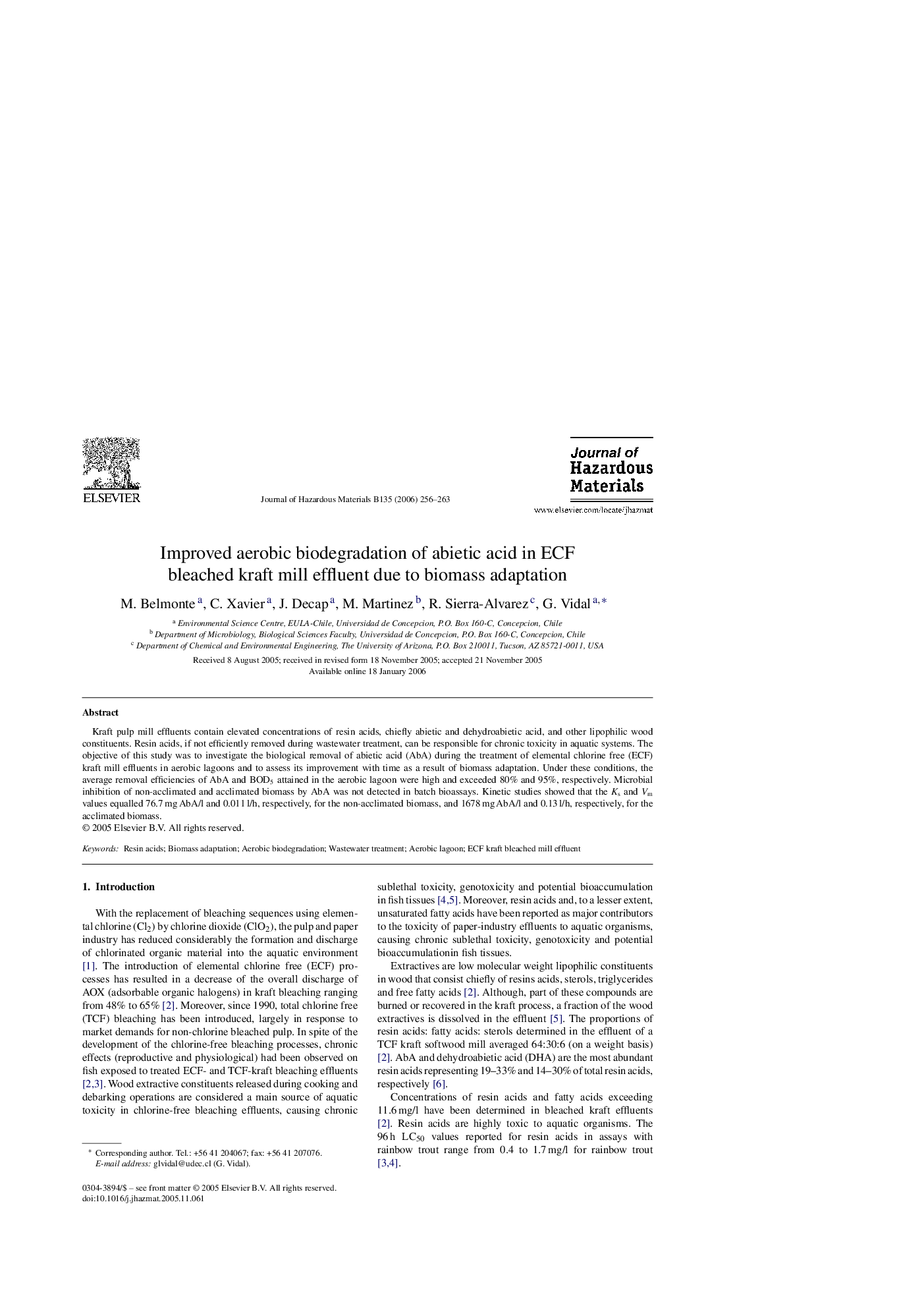| Article ID | Journal | Published Year | Pages | File Type |
|---|---|---|---|---|
| 585754 | Journal of Hazardous Materials | 2006 | 8 Pages |
Kraft pulp mill effluents contain elevated concentrations of resin acids, chiefly abietic and dehydroabietic acid, and other lipophilic wood constituents. Resin acids, if not efficiently removed during wastewater treatment, can be responsible for chronic toxicity in aquatic systems. The objective of this study was to investigate the biological removal of abietic acid (AbA) during the treatment of elemental chlorine free (ECF) kraft mill effluents in aerobic lagoons and to assess its improvement with time as a result of biomass adaptation. Under these conditions, the average removal efficiencies of AbA and BOD5 attained in the aerobic lagoon were high and exceeded 80% and 95%, respectively. Microbial inhibition of non-acclimated and acclimated biomass by AbA was not detected in batch bioassays. Kinetic studies showed that the Ks and Vm values equalled 76.7 mg AbA/l and 0.011 l/h, respectively, for the non-acclimated biomass, and 1678 mg AbA/l and 0.13 l/h, respectively, for the acclimated biomass.
